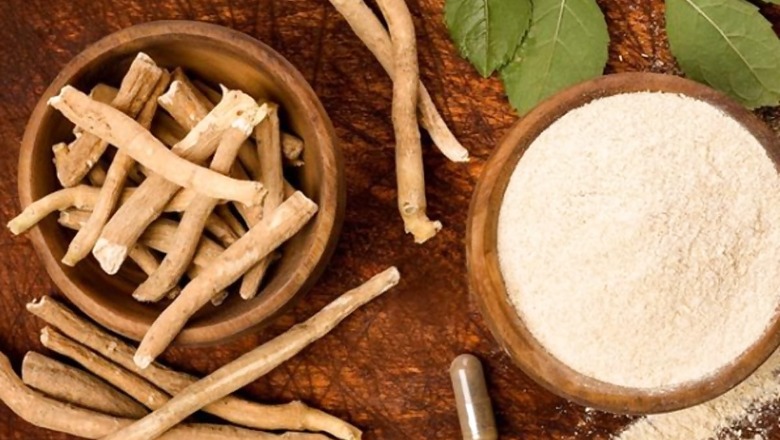
views
Stress, whether it’s direct or indirect, is the bane of most of our lives. It could be because of a job deadline, a family event or, of course, the current pandemic, but all types of stress can make your heart race, disturb sleep and give you headaches, nausea, diarrhoea, constipation, muscle pain, chest pain, etc.What are adaptogens?
It’s because we know the far-reaching effects of stress that looking for solutions or methods to reduce it becomes a necessity. For example, did you know that including adaptogenic herbs in your diet can help you overcome stress naturally? Adaptogens, as per a study in Chinese Medicine (2018), are natural substances that “enhance the resistance of the human body under a wide range of external stress conditions” especially by affecting the immune-neuro-endocrine system and the hypothalamic-pituitary-adrenal axis.
The term adaptogen was first used by Nicolay Lazarev, a Russian toxicologist, in 1940 to describe Schisandra Chinensis and other medicinal herbs. As the name suggests, adaptogens have the ability to adjust to every single body’s needs by focusing on areas of hormonal, neural and immune deficiencies to bring an individual back into balance or homeostasis. It should also be noted that Western science is only coming to terms with the benefits of adaptogens over the last half-century, while ancient Indian and Chinese medicine appear to have relied on them for centuries.Which adaptogens to adopt?
Both Chinese medicine and Indian Ayurveda recommend the use of a number of adaptogens. Most of these are very easy to find and fit right into your daily diet. The following are some that you should try.1. Ginseng: In traditional Chinese medicine, ginseng is considered to be a “chi tonic” that brings back balance. It’s particularly given to those who have a weak immune system, muscles and voice. Ginseng is also known to improve memory and calm the nerves.2. Ashwagandha: Though not related to ginseng, ashwagandha is known as the “Indian ginseng” because of its properties. This herb reduces stress and anxiety and also promotes deeper and better quality of sleep.3. Tulsi: This Indian basil not only reduces physical and mental stress but also stimulates good digestion and lung function. This is also the reason why tulsi is so revered in Ayurveda.4. Brahmi: Brahmi is a herb which improves cognitive function by nourishing the nervous system. It boosts concentration, intelligence, memory and alertness.5. Licorice: Not only does licorice have a calming effect, but it also improves the function of the lungs and the mucous membranes. The stress-relieving effects of licorice root stem from the fact that it’s an adrenal tonic and quickens the body’s stress response.6. Moringa: This herb is so nutrient-dense that it benefits the heart, kidneys, liver, blood and pancreas, apart from relieving stress and improving sleep. Moringa also helps with tissue regeneration and has an overall restorative effect on the entire body.7. Turmeric: Packed with curcumin, turmeric is a root that improves brain function and helps relieve the symptoms of stress. Turmeric’s adaptogenic properties come from its high antioxidant content, which helps regulate hormonal function, especially corticosterone.For more information, read our article on Ayurveda.Health articles on News18 are written by myUpchar.com, India’s first and biggest resource for verified medical information. At myUpchar, researchers and journalists work with doctors to bring you information on all things health.




















Comments
0 comment